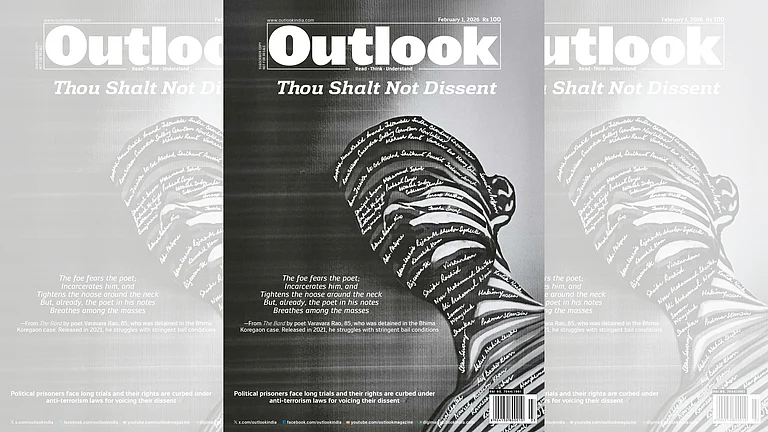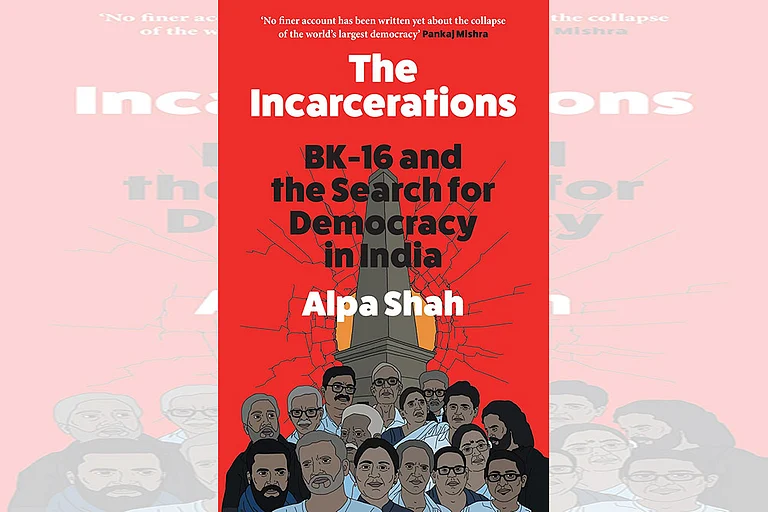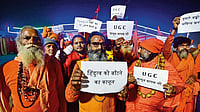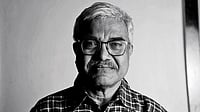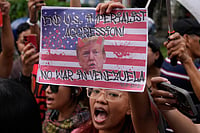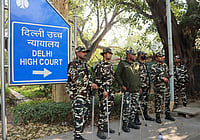
Stan Swamy's death was a result of systemic neglect rather than natural causes.
His fellow BK-16 inmates mourned him amidst a growing absence of compassion in prison.
The author wrote a tribute in solitude, reflecting the deep emotional impact of Stan’s loss.
Stan Swamy’s death was an unbearable loss to us, the BK-16—a quasi-family bound together by the regime’s foul design to silence dissent. At 84, Stan remained remarkably healthy, save for his Parkinsonian tremors and impaired hearing. His death was not of age, but of neglect—born of a judiciary and prison system that habitually withholds medical care until crisis, refusing outside treatment for fear of exposing the emptiness of prison hospitals. Stan’s passing was the price of this callousness.
Immediately after the news of his death, I wrote a note. Thanks to the rare compassion of a humane superintendent, we, the B-K accused, were allowed a small meeting to mourn him. By his first death anniversary, however, that humanity had vanished; the new regime within the prison was stripped of all concern. In that silence of the Anda cell, the weight of Stan’s absence pressed down heavily upon me. Out of that silence, I penned these lines.
The tyrant dies and his rule is over, the martyr dies and his rule begins.
—Soren Kierkegaard
As his first death anniversary approached, in my solitude of the Anda cell, I penned down the following lines on 3 June 2022.
Stan,
It’s been almost a year
Since you slipped past the fascist snare,
Evading the clutches of a regime so paranoid
That it failed to incriminate the virus as your accomplice.
Had they their way, they’d slap UAPA on COVID itself
For daring to deny them their prize.
But the echoes of your defiance grew louder,
Voices from all corners rising in solidarity.
Try as they might, they could not label them all
A judge, burdened with guilt
For delaying your bail hearing,
Dared to add his voice to the chorus.
But even he was not spared
By the monkeys of Modi.
Fearing UAPA, he swallowed his words,
And soon, his recusal joined the endless list –
A sinister game played in the courts:
A good judge recusing,
A bad one rejecting,
Ensuring our captivity for the sadistic pleasure
Of the fascist machine.
Good, you are not here
To witness this mockery of justice.
Stan,
You should have stayed a little longer
To receive the Martin Ennals Prize –
A Nobel for human rights,
A slap in the face of a shameless regime
That branded you a dreaded terrorist.
What an irony!
While the world paid you homage,
The state, Goebbels-like, trumpeted its lies,
Oblivious to its disgrace.
After all, terrorism and human rights do not mix –
Like filth and fragrance,
A sinner and a saint,
Police and the people,
A knife and a sipper.
They claimed you conspired to overthrow the state,
As if their fortress of power
Were a soft toy
That could be snatched from the iron grip
Of Modi, Shah and Doval.
And even if it were –
They knew you could not.
Your trembling hands, unable to hold a sipper,
Were suddenly a threat to a nuclear state.
A sipper, deemed a dangerous weapon
By the paranoid deep state,
Denied to you for days
Until it turned into national black humour.
Yet the thick-skinned hippo of power
Felt no shame.
Can empathy for Adivasis,
Compassion for their suffering,
Anger against injustice –
Be a crime?
Is educating them about their rights,
Urging them to resist plunder
A conspiracy?
A plot against the state?
A state armed to the teeth,
Boasting global power,
Yet planting fabricated evidence
To jail an eighty-four-year-old Parkinson’s patient –
As though he were a gangster.
Even the prison walls
Laughed at the absurdity
When you walked through their monstrous gates –
A frail, deaf, ageing priest
Charged as a terrorist.
Surely, a rare sight for any prison in the world!
You must have been a terribly cunning one,
Eluding capture for decades,
Disguised as an austere Jesuit,
Preaching love,
Teaching tribals their rights.
But were you foolish enough
To leave your sinister plans and contacts
Neatly tucked in your computer?
Strange –
But not to a state
That scripts its own fictions.
You believed you could not be jailed
For doing nothing wrong.
They proved you wrong –
Not only jailing you, but killing you
Without a trial.
Before your arrest,
You asked the people:
‘What crime have I committed?’
Your crime, Stan,
Was that you took Jesus at his word.
That you left comfort behind
And chose the poorest of lands
As your karmabhoomi.
That you stood by them,
Lived their struggles,
Spoke their truths.
That you built ‘Bagaicha’ – a sanctuary,
A place of hope for the abandoned.
Like Jesus, you became a pariah to the rulers.
Like Jesus, you were crucified.
As Adivasis were branded Maoists,
Dragged into jails,
You raised your voice.
And that was your undoing.
You disrupted their grand design –
To wipe Adivasis off their own land,
Rich with minerals worth trillions.
To sell forests, rivers, mountains,
To corporations and cronies,
With every cog in the machine
– from the uniformed executioners
to the khaki-clad lawmakers –
rewarded handsomely in blood money.
Unbeknownst to you, Stan,
You did commit a crime.
A crime of faith in the Constitution,
Believing it placed people above power.
A crime of criminal innocence,
Thinking truth alone could challenge tyranny.
A crime of underestimating the state –
Believing that clenched fists
Could shake the fortress of oppression.
Many did rise,
And found themselves in jails.
Just like you.
I remember the first time I saw you –
Lying on the floor of the prison hospital,
A frail old man, struggling to stand,
Yet smiling like a schoolboy.
You reached out,
Grasped my hands through the iron bars,
And we kept meeting –
Until they took you away in a wheelchair.
I told you, ‘Don’t come back.’
I never thought you would take me
So tragically at my word.
Let the truth be told:
You were murdered.
Institutionally murdered.
And yet – there was no remorse,
No shame,
Only the mechanical shrug of a brutal system.
Stan,
You mocked your incarceration
With an easy smile.
You endured hardship,
But never let it burden others.
You stunned the jailers
By showing concern for fellow prisoners –
A language they could not comprehend.
While you longed to return to your people,
You spoke with a mischievous twinkle,
Joking that you’d live to 185,
Counting your age
And adding the years of punishment against the fabricated charges.
Little did you know,
The state would prove you wrong
By killing you before a trial.
Even in jail,
You sang the songs of Adivasis,
Eyes shining with belief
In a revolution to come –
A revolution not for vengeance,
But for justice.
All you wanted
Was to die among your people.
Yet the fascist brutes
Would not grant you even that.
(Excerpted from The Cell and the Soul with permission from Bloomsbury India)
This story appeared as An Elegy For A Comrade in Out of Syllabus, Outlook’s November 1 issue, which explored how the spirit of questioning, debate, and dissent—the lifeblood of true education—is being stifled in universities across the country, where conformity is prized over curiosity, protests are curtailed, and critical thinking is replaced by rote learning, raising urgent questions about the future of student agency, intellectual freedom, and democratic engagement.









